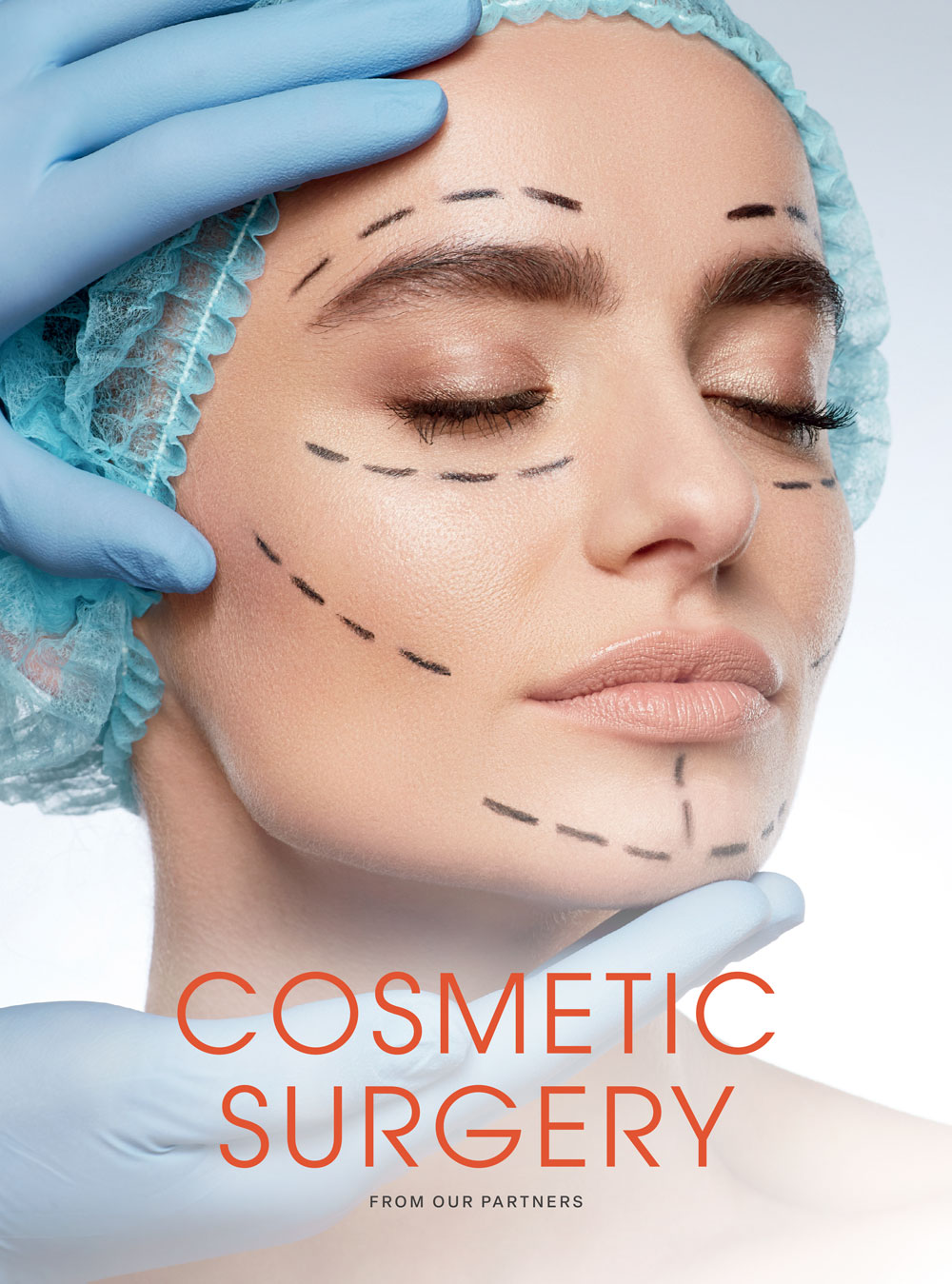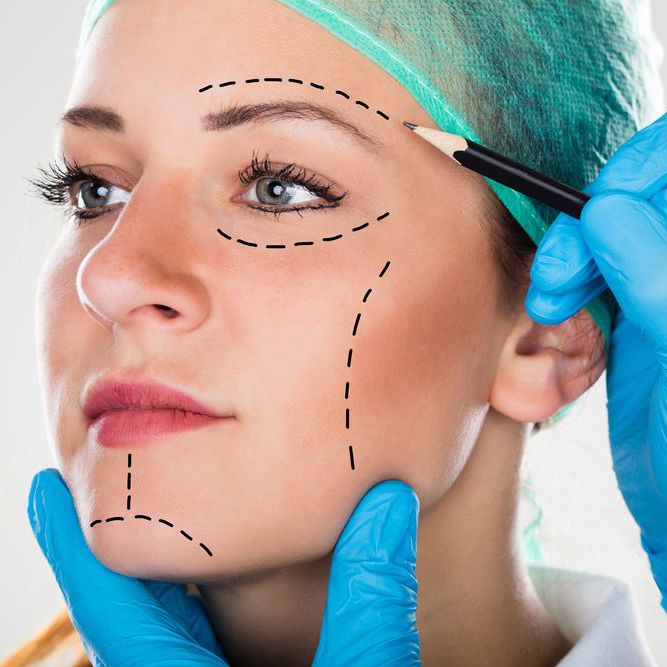Examining the Psychological and Social Factors That Drive Individuals to Take Into Consideration Plastic Surgery as a Means of Renovation
The choice to go after cosmetic surgery usually extends past plain appearances, linking with psychological and social characteristics that merit comprehensive examination. Variables such as self-confidence, pervasive social charm standards, and the prevalent influence of social media merge to shape specific inspirations for surgical improvement. As these influences end up being increasingly noticeable, comprehending the underlying social and emotional contexts is important. What continues to be to be explored is the extensive impact these variables have not only on individual identity however also on wider societal norms and worths surrounding elegance and acceptance.
The Role of Self-confidence
Self-esteem substantially affects a person's decision to pursue cosmetic surgical treatment. People with reduced self-esteem frequently view themselves in an adverse light, leading to feelings of inadequacy regarding their physical appearance. This unfavorable self-perception can drive them to seek medical treatments as an approach of boosting their self-image. The need for improvement in one's appearance is frequently linked to a belief that such changes will elevate their overall self-worth and confidence.

Inevitably, the function of self-confidence in the decision-making process regarding plastic surgery highlights the intricate interaction between body image, individual satisfaction, and psychological health and wellness. Comprehending this relationship is crucial for medical care specialists to guarantee that clients are making educated choices rooted in reasonable assumptions and psychological well-being.
Social Appeal Criteria
Influenced by prevalent media portrayals and cultural stories, societal elegance requirements play an essential duty in shaping individuals' perceptions of their very own bodies. These requirements are often identified by an idyllic form of appeal that emphasizes attributes such as symmetry, youthful vigor, and slimness. As these suitables are bolstered via different channels, consisting of movie, tv, and marketing, people frequently internalize these messages, causing dissatisfaction with their natural appearance.
The effects of these societal norms prolong past visual preferences; they can impact self-esteem, mental health and wellness, and social partnerships. Individuals who view themselves as disappointing these criteria might experience feelings of inadequacy, prompting a wish for plastic surgery as a way of achieving societal approval. This quest is commonly sustained by the idea that conforming to these ideals will certainly improve not just physical look yet additionally social standing and individual fulfillment.

Influence of Social Network
The effect of social elegance standards is further amplified by the surge of social networks platforms, where curated pictures and idyllic depictions of appeal are common. Users are constantly exposed to filtered and edited photographs, which typically illustrate unattainable physical features. This direct exposure grows a society of contrast, leading individuals to evaluate their own appearance against these frequently unrealistic benchmarks.
Social media influencers and celebs regularly advertise cosmetic procedures, normalizing the notion that medical improvements are a sensible ways for accomplishing social suitables (plastic surgery rancho cucamonga). The visibility of these improvements can develop an understanding that going through cosmetic surgical treatment is a conventional method, thus affecting people to think about similar treatments as a path to improved self-worth and social approval
Furthermore, the interactive nature of social media permits for instant feedback with likes and remarks, additionally reinforcing the need to adapt to popular elegance requirements. Such interactions can worsen feelings of insufficiency and drive individuals towards plastic surgery as a way of obtaining recognition. Ultimately, social media sites plays a critical duty in shaping assumptions of charm, official statement which considerably influences the decision-making processes bordering cosmetic surgery.

Cultural Viewpoints on Appearance
Across numerous cultures, assumptions of look are deeply rooted in historical, social, and financial contexts, shaping people' sights on beauty and worth. In lots of societies, look works as a substantial pen of identity, affecting social status, specialist chances, and individual connections. For instance, in some cultures, light skin is often connected with riches and advantage, while others may glorify darker skin tones as icons of toughness and authenticity.
In addition, standard elegance requirements are often continued via cultural stories, media depictions, and household affects, leading to varying perfects across different areas (plastic surgery rancho cucamonga). In Western societies, the emphasis on youth and fitness typically drives people towards cosmetic improvement, while in particular Eastern societies, more refined adjustments aligned with standard aesthetics might be chosen
Globalization and the proliferation of electronic media have further complicated these dynamics, developing a hybridization of elegance ideals that goes beyond geographical borders. As people significantly navigate these cultural narratives, the pressure to comply with specific appearance standards can cause the need for cosmetic surgery, reflecting a complex interplay of individual ambitions and social worths. Recognizing these social viewpoints is essential in addressing the motivations behind plastic surgery considerations.
Psychological Impacts of Cosmetic Surgery
Numerous individuals looking for plastic surgery record experiencing profound emotional impacts that can considerably alter their self-perception and psychological wellness - plastic surgery rancho cucamonga. The desire for physical improvement commonly comes from underlying issues such as reduced self-confidence, body dysmorphic problem, or social pressures pertaining to appeal standards. For some, the prompt post-operative phase can bring about a momentary boost in positive self-image and fulfillment with their appearance, promoting a sense of empowerment
Nevertheless, these positive sensations might not be withstanding. Research suggests that while some people experience enhanced self-worth, others may deal with elevated anxiety or depression if their assumptions are not fulfilled. This inconsistency can emerge from unrealistic perfects perpetuated by media depiction and social narratives bordering beauty.
Moreover, the emotional implications of plastic surgery expand past the individual. Relationships with household and friends may be stressed as social characteristics shift, causing sensations of seclusion or alienation. Eventually, the emotional impacts of cosmetic surgical procedure article source are complex and complex, needing mindful factor to consider by both prospective clients and health care service providers to make sure enlightened decision-making and realistic expectations.
Conclusion
In final thought, the choice to go after cosmetic surgical procedure is significantly influenced by a combination of self-confidence problems, societal charm requirements, and social perspectives on look. The prevalent reach of social media sites better exacerbates these pressures, advertising impractical perfects that people often strive to attain. Understanding these social and emotional variables is essential for addressing the inspirations behind cosmetic surgical procedure, highlighting the demand for an extra nuanced discussion surrounding charm and self-acceptance in contemporary culture.
The choice to go after cosmetic surgical treatment frequently click to read extends beyond mere visual appeals, linking with emotional and social dynamics that merit extensive evaluation. Ultimately, social media plays a pivotal duty in shaping perceptions of elegance, which substantially affects the decision-making procedures bordering cosmetic surgery.
As people progressively navigate these social narratives, the stress to adapt to specific look standards can lead to the need for cosmetic surgical treatment, reflecting an intricate interplay of social worths and personal ambitions.In final thought, the choice to go after cosmetic surgical procedure is dramatically influenced by a mix of self-confidence concerns, social beauty criteria, and social viewpoints on appearance. Recognizing these mental and social elements is crucial for dealing with the inspirations behind cosmetic surgery, highlighting the requirement for an extra nuanced conversation bordering elegance and self-acceptance in contemporary society.